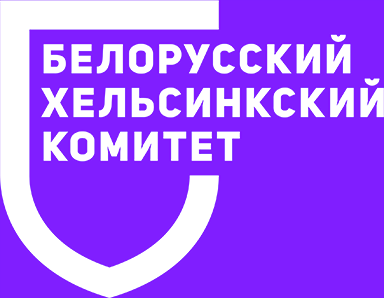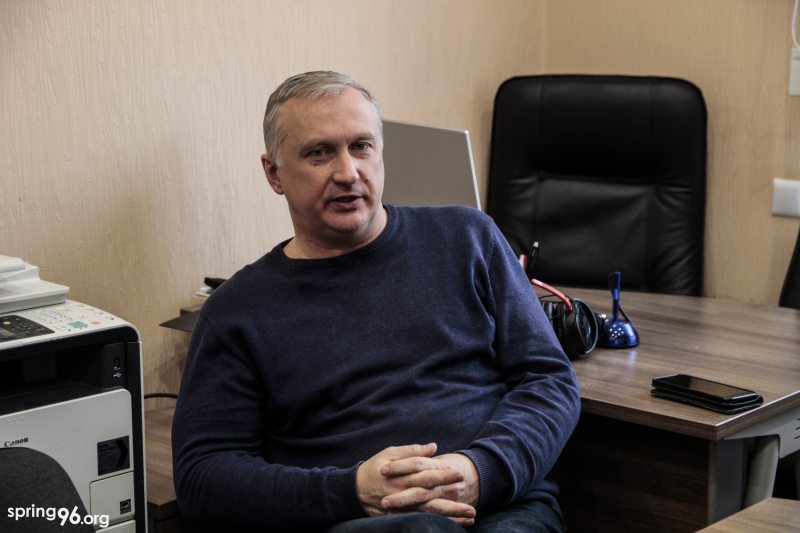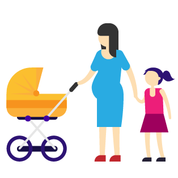
Теxt: ПЦ "Вясна"
On Friday, 20 December, civil society experts in Belarus presented an alternative report to the UN Committee on the Rights of the Child. The report will be presented at the end of January 2020 at the Committee’s 83rd session. Eight human rights organizations and public associations took part in its preparation, among which the Helsinki Foundation for Human Rights (Poland), Belarusian Helsinki Committee, Viasna Human Rights Center, Center for the Promotion of Women's Rights - Her Rights, FORB Initiative, “Levania” Center for Child Development Problems, Office for the Rights of Persons with Disabilities, and Human Constanta.
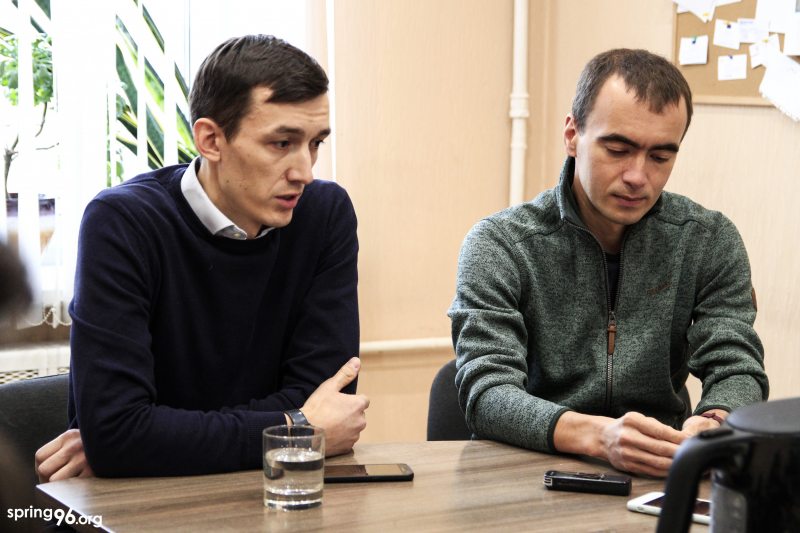
-
Dmitry Chernykh, BHC lawyer, and Alexei Konstantinov, expert on educational policy, at the Levania Center during the report presentation
Human rights defenders note that some challenges related to fulfillment of the obligations enshrined in the Convention on the Rights of the Child remain in legislation and practice since the last state reporting to the Committee on the Rights of the Child (2011). Specifically, these challenges involve the situation with child rights in the administration of justice, the realization of the right to life, seizure of children from families, and health care. In addition, there are problems in Belarus with realization of the rights of vulnerable groups of children: children with disabilities, Roma, children with ASD (autism spectrum disorders) and others.
Apart from problems with children’s rights in Belarus, the alternative report also offers a number of recommendations to the state on how to improve the situation.
“These are different recommendations, both general and specific, including establishing the Commissioner for the Rights of the Child and creation of an anti-discrimination law. We also suggest positive measures for children from vulnerable groups, since failure to introduce affirmative action amounts to discrimination. We know how deplorable the state of the Roma children is. The state’s task in this situation is to adopt special programs for social integration of Roma children, to improve their financial situation and ensure their full education,” said BHC lawyer Dmitry Chernykh, BHC lawyer, at the presentation of the report.
What problems with children’s rights in Belarus are still brought to the attention of the UN Committee on the Rights of the Child?
Violence against children
In Belarus, there is still no legislative prohibition on all types of corporal punishment at home, in schools and other institutions. Physical violence in families is still considered an acceptable educational measure. These conditions put children in a very vulnerable position. Children’s rights to the inviolability of the person and to state‘s protection from any kind of violence are practically ignored. In this regard, human rights activists recalled the recent incident in one school in Gomel.
Human rights activists also draw attention of the Committee on the Rights of the Child to juvenile offenders convicted under article 328 of the Criminal Code (drug trafficking). Some of them are known to have suffered from torture and other cruel or degrading forms of punishment or treatment. Possible violations by employees of law enforcement agencies are caused by:
- closed nature of penitentiary system,
- lack of a national preventive mechanism against torture,
- effective public control in places of forced isolation,
- lack of a clear legislative prohibition of torture.
In such circumstances, juvenile prisoners become a particularly vulnerable group, completely open to various forms of cruel or degrading treatment or punishment.
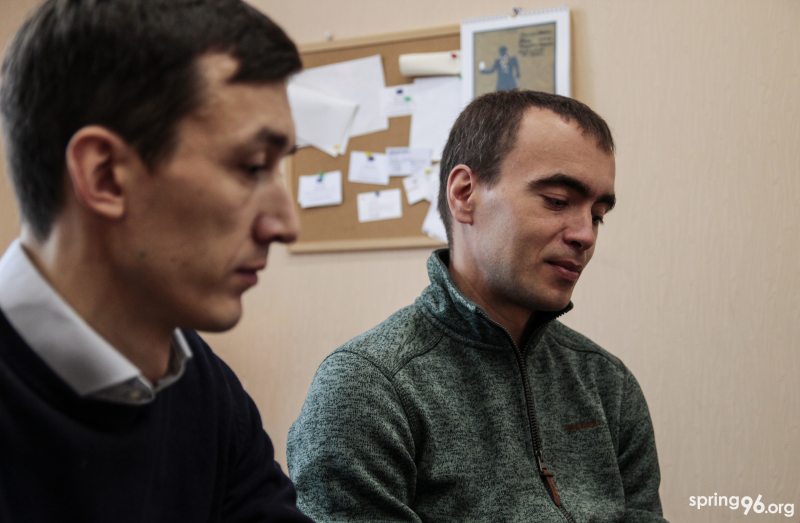
-
Dmitry Chernykh, BHC lawyer, and Alexei Konstantinov, expert on educational policy, at the Levania Center during the report presentation
Decree No.18
Despite numerous signals about the formal nature of decisions by local authorities in Belarus, Decree No. 18 “On Additional Measures for State Protection of Children in Dysfunctional Families” continues to be applied.
Due to vague and imprecise wording of the Decree provisions, state allow for various manipulations. For example, children are entitled to protection and may be placed under state care if it is revealed that the parents "improperly fulfill their responsibilities in raising and maintaining children." Legislation allows for interpretation of alleged socially dangerous situations in a way that is contrary to the spirit of the “best interests of the child”.
Furthermore, the alternative report draws attention to the fuzzy wording of the criteria for recognizing a family as one at risk. This provokes abuse in a range of situations. The list of features indicating a dysfunctional family include such ones as “long-term unemployment of one parent (both parents), as well as a frequent change of jobs”; “children’s frequent diseases and injuries”; “parent‘s complete indifference and lack of care and attention to a child” and others. The Commission‘s decisions are often based on subjective criteria. Basically, family’s recognition as the one at risk does not facilitate conflict solution in general and creation of safe conditions for a child.
Children with disabilities and health care
Alexey Konstantinov from the Levania Center for Child Development Problems gives two examples illustrating the problems children with disabilities face when accessing medical care:
- situation of children with ASD (children with autism spectrum disorders),
- possibility of obtaining drugs for children with rare genetic diseases.
Protecting children from drug abuse
The Committee on the Rights of the Child was also informed that the state’s measures for protection of children from misuse of narcotic drugs and psychotropic substances were untimely and insufficient. As a result, over a period of 4.5 years, 716 minors were convicted of drug trafficking. “The measures taken by the state to combat the spread of drugs have largely come down to disproportionate reprisals against children involved in criminal activities of national and international groups,” human rights activists note.
In this regard, the state is encouraged, among other things, to create a system preventing involvement of minors in drug trafficking in accordance with the standards of the rights of the child.
A child in Belarus is not a person with his or her own rights and interests.
Belarusian legislation does not embody the principle of ensuring the best interests of a child, as provided for in article 3 of the Convention. In fact, the concept of “principles of the best interests of a child” has been replaced by “legitimate interests”. However, the latter does not fully comply with the principle of the Convention, since the legitimate interests do not always reflect the best interests of the child. Failure to define criteria for legitimate interests gives rise to abuses in practice.
In addition, no comprehensive and independent monitoring of children's rights is being held. The National Commission on the Rights of the Child in Belarus is not an autonomous and independent body — it is just part of the state apparatus. Moreover, its work appears to be purely formal (for example, reception of citizens is held once a month; reports on the performance results are not made avaliable). It fails to fulfill the function of coordinating and monitoring the observance of children's rights at national and local levels.
At the report presentation of the report, Vesna lawyer Pavel Sapelko also drew attention to the problem of freedom of peaceful assembly for Belarusian children:
“Imagine a Belarusian Greta Tunberg willing to protest on the street on some environmental issue. Firstly, she would hardly find where to read about it, since there is no free version of the Law on Mass Events available on the Internet. Secondly, the child won’t find out about freedom of peaceful assembly at school. Most likely, they will only be told about prohibitions and restrictions regarding this. Thus, the right to peaceful assembly is limited for children in Belarus. However, for adults as well. "
